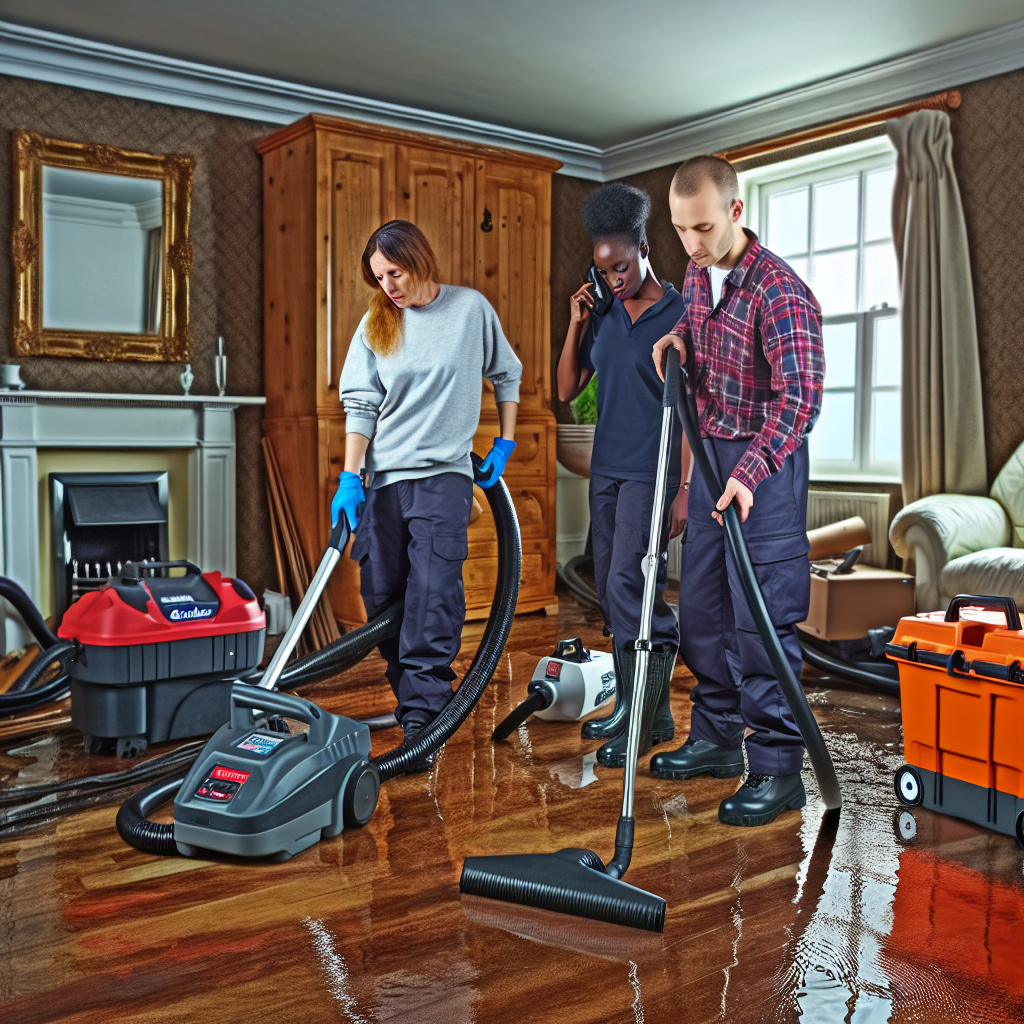Mastering Flood Damage Cleanup: A Comprehensive Guide for UK Property Owners
The damage that can be caused by a flood to your property can be extensive and often devastating. Dealing with the aftermath can seem overwhelming, especially when it comes to cleaning up and restoring your property. In addition to potential structural damage, flood water can introduce potential health hazards into your home and complicate insurance claims. As a property owner in the UK, mastering flood damage cleanup can be instrumental in mitigating damage, ensuring health safety, and successfully navigating insurance processes. This comprehensive guide will provide practical restoration techniques, health safety measures, and insights on handling insurance claims that property owners can apply post flood disaster.
Table of Contents
Assessing the Damage
Taking stock of the situation after a flood is a daunting task, but the swift assessment of damages can greatly influence your recovery and restoration processes. This includes identifying the type of floodwater that has affected your property and assessing the extent of structural damage.[1]
Common types of floodwater include clean water, grey water, and black water, each posing unique threats to the property and requiring specific treatment methods. In regards to structural integrity, floods can severely damage walls, floors, and fixtures, and contribute to mould or mildew formation.[2]
Clean-up and Restoration
Clean-up and restoration involve a series of complex tasks, from pumping out flooded areas, salvaging valuable items, treating mould growth, to reconstructing damaged components of the property.[3] Using professional cleanup services is advised due to their access to suitable equipment and training. However, when carrying out the task on your own, it is essential to equip yourself properly and adhere to recommended practices.[4]
Health Safety Measures
Proper health safety precautions must be taken to protect individuals from potential health hazards posed by polluted floodwater. Wearing protective gear and immunisations against waterborne diseases are two primary methods of ensuring safety. It is also crucial to thoroughly disinfect all salvageable items if they have come in contact with floodwater.[5]
Navigating Insurance Claims
The process of filing insurance claims for water damage can be challenging. Depending on the type of insurance policy, coverage may vary. However, documentation of all damages and interactions with your insurance company are crucial in navigating this process.[6]
Frequently Asked Questions
What is the first thing I should do after a flood?
Is professional water damage restoration necessary?
How can I protect myself and my family from health hazards during the cleanup process?
What exactly is covered by my flood insurance?
What can be salvaged after a flood?
References
[1] Office for National Statistics. (2019). “Flood damage to properties and land”. UK Gov. Link
[2] Environment Agency. (2020). “Understanding flood risks and their impacts”. UK Gov. Link
[3] British Damage Management Association. (2018). “Guide to recovery after flood”. BDMA. Link
[4] National Resource Defense Council. (2017). “Cleanup after a flood: A guide for homeowners”. NRDC. Link
[5] Public Health England. (2018). “Public health advice: Cleaning up after a flood”. UK Gov. Link
[6] Association of British Insurers. (2020). “Responding to Major Floods”. ABI. Link
In conclusion, handling flood damage requires proper knowledge and strategies, starting from the initial assessment to the final restoration process. Moreover, ensuring the health and safety of all individuals involved is paramount. Navigating insurance claims can also be made smoother through accurate documentation and understanding your insurance coverage. By mastering these essential factors, UK property owners can gain better control of flood damage cleanup and recovery operations.




